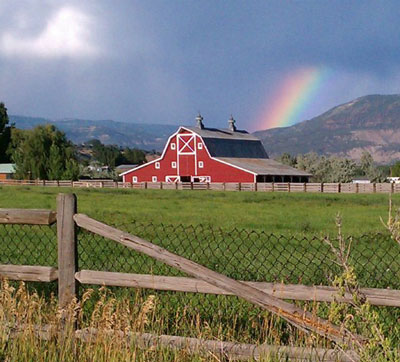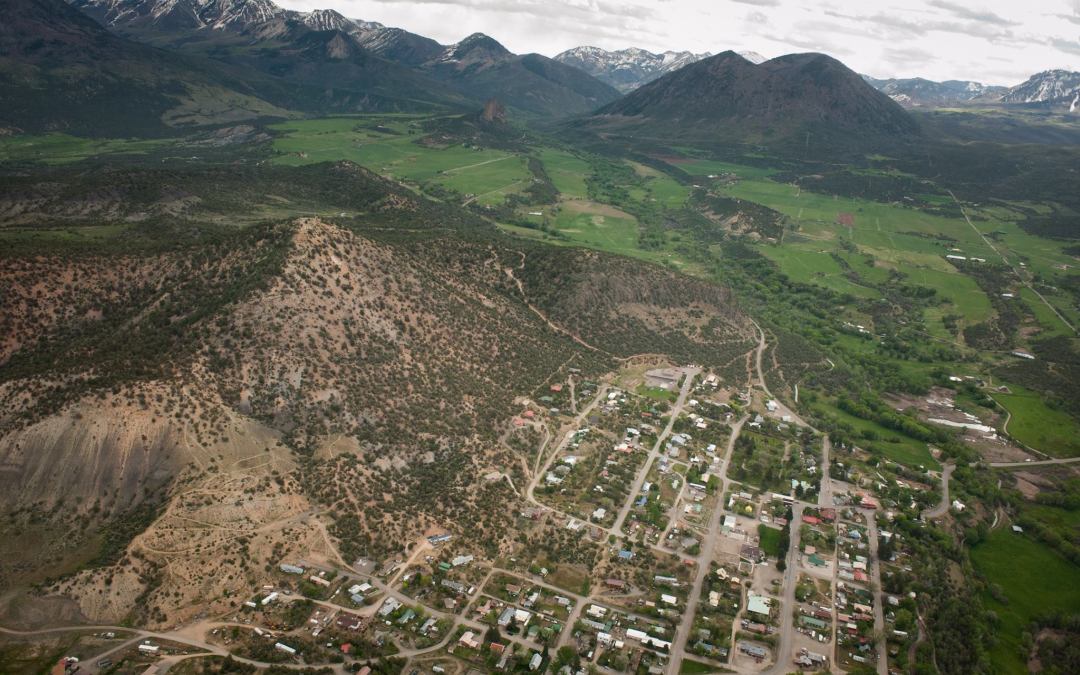FROM NEWS RELEASE – JUNE 28, 2019
BLM Moves to Open North Fork Valley to Fracking and Oil and Gas Development
NORTH FORK VALLEY, CO. – ‘Unsurprised and undefeated’ is how many in this rural valley are describing their reaction to the announcement by the Trump administration’s Bureau of Land Management (BLM) that it was ignoring years of public input in favor of putting this farm community at risk with oil and gas development and fossil fuel extraction.

On June 28 the BLM released it’s long-awaited Resource Management Plan (RMP) for the Uncompahgre Field Office, which includes the North Fork Valley – an organic and local food hot-bed and the state’s “Farm to Table Capital.”
The new RMP is a complete rewrite from an earlier draft version, that was prepared and developed under the Bush and Obama administrations.
The Trump plan would open almost the entire resource area–and much of Colorado’s Western Slope from near Telluride to Paonia and beyond–to oil and gas development, uranium mining, and coal.
“The writing was on the wall, and the fix was in. It’s not surprising that under this administration the input of locals and tens of thousands of others was likely to be ignored in favor of ‘energy dominance,’ especially with that decision coming down from DC. But our health and public lands are worth more than that, and we’re not done fighting for them.”
Andrew Forkes-Gudmundson with Citizens for a Healthy Community, a North Fork based group that works to end oil and gas development that is incompatible with the area.
Among the top concerns, and critical resources that the agency is obligated to protect and over which its decisions are likely to be challenged, include water and air, and the lands themselves – from their scenic features, to their soil health, to their impacts on sedimentation.
The value of our public lands for recreation and wildlife, and the looming climate crisis that demands we move away from fossil fuels, are all factors that must be properly accounted for, and which will be carefully scrutinized as community groups consider the decision in more detail.
“The North Fork Valley is far too important for its many values to open up to additional oil and gas development. We need to be moving forward with clean energy solutions, not drilling for more gas and oil. We need to address climate change now, and to protect our public lands and clean air and water. It all points to sharply curtailing, not expanding, oil and gas drilling here.”
Pete Kolbenschlag with the Colorado Farm & Food Alliance, which seeks to protect rural areas and the state’s lands and water, and to safeguard its burgeoning local food economy.
Many also noted the timing of the announcement, and the start of a brief 30-day ‘protest’ period when citizens can file their grievances on the decision, coming one week before the July 4th holiday and at the start of the valley’s Cherry Days celebration.
“It does feel like a thumb in our eye. This is our main holiday, and here we have been working with the local BLM office for years. We have provided volumes of significant information. We have stood up to be counted at every opportunity offered, and times between. And now the federal government is telling us that our input did not matter.”
Mark Waltermire with the Valley Organic Growers Association – the North Fork’s leading agricultural association.
Colorado BLM Ignores Years of Community Input
In agency-speak that “talk to the hand” response from the agency to the American public translates to this dismissive comment from the BLM’s Colorado Office, tasked with relaying the Trump administration’s dictate down to the people: “Public comments resulted in the addition of clarifying text, but did not significantly change proposed land use plan decisions.”

The State of Colorado also has an important and unique opportunity to consider the management proposed in this plan, mandated in federal law, with Governor Polis being given sixty days to provide official comment on the proposed plan.
The importance of these public lands to the State of Colorado, and the impact that expanding oil and gas development would have on them, on the state’s climate goals, and on disrupting other economic drivers in the region, all deserve to be carefully weighed by Gov. Polis as he formulates the State’s response.
This will be the first such federal plan released after passage of ground-breaking climate legislation in the Colorado General Assembly, which Gov. Polis has signed into law, and a major test of the state’s commitments and authority.
“We are a community that is engaged and capable, and we will not let this administration roll over us. We have stood up every step of the way – many even spent a year developing a local vision for the public lands here, and we participated for a decade before that, in agency meetings and comment periods. It wasn’t done to be ignored. The public lands here and the lives that depend on them – wildlife and human – are far too important to back down now. We hope that the State of Colorado also recognizes that and will stand with us in this effort.”
Patrick Dooling, with the Delta County-based Western Slope Conservation Center.
The protest period on the final Environmental Impact Statement that will accompany the plan runs just 30 days, ending July 29. Community groups and others will be reviewing the final EIS and plan carefully and will provide other comments and analysis in the near future.
# # #


Stop fracking. Just stop it!
I am against this
Unconscionable and awful! We must stop this.
Shame! Shame on the Ignorant and hateful Trump administration, and the BLM for allowing the contamination of this pristine area of the state! They must be stopped at all costs before they poison everything!
Michigan is fighting a Canadian firm, Enbridge, Line 5 and its absurd idea to build a tunnel under the Great Lakes to replace two damaged 66 yr. old pipelines (hit last year by a 6000 lb anchor and badly dented.
Don’t give up. Our new AG found the last minute tunnel deal violated the state constitution and filed a suit to end the 1953 Easement as it does not protect the public trust.
Minnesota got a Judge to rule that Enbridge’s replacement plan for Line 3 failed to consider the costs of a spill on Lake Superior and the Minnesota Dept. Commerce found they “no meaningful insurance to cover the costs of a spill.
Natural gas is “an unmitigated disaster,” says a former Shale CEO, in that it has never turned a profit since the boom (and the projections that it would last forever. have cost investors billions in capital).
Shale oil & gas has gone the way of horse and buggy. Time to stop building infrastructure for an obsolete fuel.